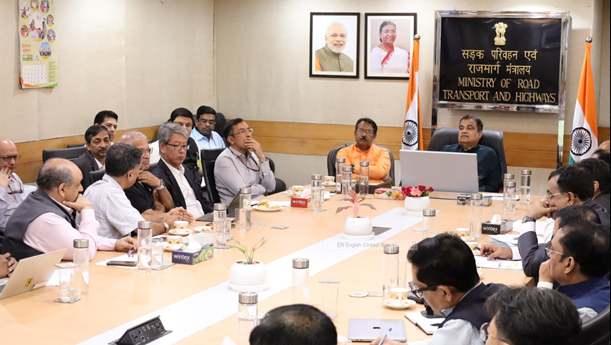Minister for road transport and highways Nitin Gadkari has asked automobile manufacturers to look into ways of making ethanol and flex fuels more acceptable to the public, citing Brazil’s successful integration of biofuels in its transportation systems.
The minister also discussed how a shift to biofuels from fossil fuels would help India become #AtmaNirbhar (self-reliant), reduce pollution, cut imports of fossil fuels, and help consumers by lowering fuel prices — all while benefiting farmers.
In December 2021, the government advised automobile manufacturers to start production of flex fuel vehicles and flex fuel strong hybrid electric vehicles (FFV-SHEV) complying with BS-6 emission norms. An electrified flex fuel vehicle provides the option of advanced chemistry battery along with a flex fuel engine.
Gadkari had said then that guidelines for the use and development of flex fuel engines and vehicles would be formulated in line with the government’s vision to reduce crude oil imports and the policy on promoting ethanol as a transport fuel. These vehicles are capable of running on a combination of 100% petrol or 100% bioethanol and their blends, along with strong hybrid electric technology in the case of FFV-SHEVs.
However, the segment is yet to pick up. In August 2023, Toyota Kirloskar Motor unveiled the prototype of the world’s first BS-6 electrified flex fuel vehicle.
Tags: Ethanol, Fossil Fuels, SIAM



Recent Posts
New Report Highlights Potential of Voluntary Insetting to Support Maritime Decarbonisation, Calls for Robust Safeguards
Smart Ship Hub achieves industry first with ABS emission reporting
Henkel Rolls Out India’s First Mid-Haul Re-Powered Electric Trucks for Commercial Logistics
Sustainability in Focus at 11th SIAM Automotive Logistics Conclave in New Delhi
L&T Energy GreenTech to Establish India’s Largest Green Hydrogen Plant
JK Srivastava Group and Hynfra Announce $4 Billion Green Ammonia Project in Andhra Pradesh
Andhra Pradesh Unveils Ambitious Green Hydrogen Valley Plan to Lead India’s Energy Transition
South Africa advances plans to decarbonize shipping sector